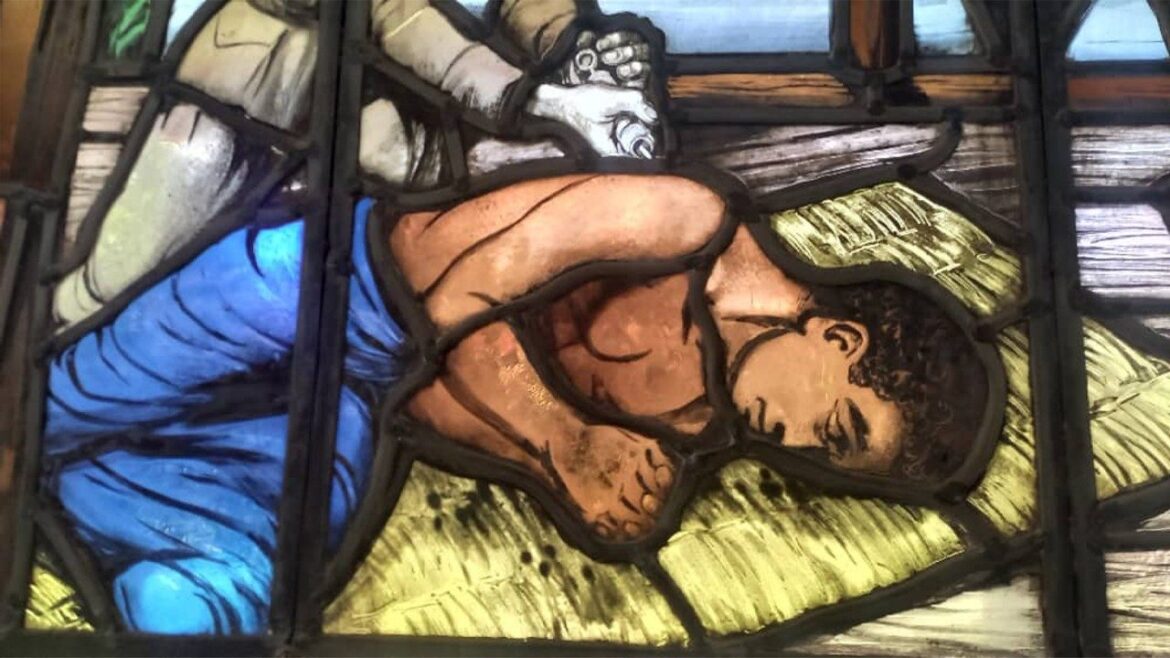The story of Blessed Peter To Rot cannot be told apart from the upheavals of World War II. When Japanese forces occupied Papua New Guinea, foreign missionaries were imprisoned, leaving catechists like To Rot to guide local communities in faith. Blessed Peter To Rot’s defiance of polygamy was his ultimate sacrifice. Archbishop Tatamai gives first hand witnesss from stories told.
By Christine Masivo Cps
Archbishop Rochus Josef Tatamai knows that the word ‘martyrdom’ is often uttered with reverence but rarely understood in its depth. For him, it is not an abstract theological term; it is family history. As the relative of Blessed Peter To Rot, he states, “the lay catechist martyred during World War II for defending the sanctity of marriage and the freedom of faith in Papua New Guinea, lives in the shadow and the light of that sacrifice.”
The unrest
The Archbishop recalls, “the families of Peter ToRot and his siblings were hiding in the tunnels at Taogo from the Allied forces’ raids on the Japanese. Theresa IaVarpilak and Josef Tatamai, Peter ToRot himself and Gabriel Telo and their families all had separate tunnels at Taogo. Peter ToRot also kept the Blessed Sacrament and the consecrated Host for the Sick here in his family tunnel.
The Japanese arrested and interrogated the Tolai prisoners, of whom Peter ToRot was one at the caves that were used as Vunaiara Police Concentration Camp, also known as Vunaiara Japanese Police Station.
His martyrdom
Blessed Peter To Rot’s death came in 1945, when the occupying forces of the Japanese banned Christian practices and promoted polygamy as a way to weaken local communities. Refusing to stay silent, he continued to teach, to pray with the faithful, and to defend the dignity of marriage.
For that, he was imprisoned and ultimately killed. “His martyrdom was rooted in everyday morality,” Archbishop Tatamai says. “He defended values that remain timeless – fidelity, respect for human dignity, and loyalty to God above worldly power through defending the sacred vows of matrimony.”
“Martyrdom is not about seeking death,” he explains, “but about standing firm for the truth, even when it costs you everything. To Rot never wanted to die; he wanted to serve, to love his family, to guide his people in faith. But when faced with injustice, he chose fidelity to God’s law over compromise. That is the heart of true morality.”
Morality and marriage
It was during World War II that Japanese authorities attempted to legalize polygamy, a move designed both to undermine Christian teaching and to weaken village cohesion. “To Rot resisted, insisting that marriage remained a sacred covenant between one man and one woman”, Archbishop Tatamai reiterates.
Archbishop Tatamai says that To Rot, fully aware of his fate, told his fellow prisoners, among whom were his two brothers, “You will be released. I will remain here, for this will cost my life.” The archbishop echoes To Rot’s words: “He was right. In 1945, he was executed by the Japanese, remembered today as a martyr for the faith and defender of family life.”
“What Peter defended with his life now challenges all of us to uphold Christian marriage with the same seriousness,” he emphasizes. “The sacrament of marriage promotes one man, one woman, and that is important and relevant, especially to a country as much as to the church.”
Upholding Christian values
“Our challenges are different, but the pressure to compromise values is very real,” the Archbishop reflects. “We live in a society where convenience often overrides conscience, where relativism can erode truth. Peter To Rots’ example shows us that morality is not negotiable; it is a compass that keeps us oriented toward God, no matter the storm.”
“Saint John Paul the second on the 17th of February 1995, during the beatification of Peter To Rot, openly said to us in Papua New Guinea, that we should be happy that our Melanesian brother, the first blessed was a layman,” the archbishop recalls, “And the fact that being a layman, he promoted the family life in the sacrament of marriage and the death for the sake of Christ.”
The archbishop echoed, “Holiness is an important call to live a morally upright life, up to our Christian commitment, especially for the sacrament of marriage and for the stability of family life. With this, we can see the relevance of the sacrament of marriage and also family life.”
Conviction
For young Catholics, especially, he believes the witness of Blessed Peter To Rot speaks directly to their struggles. “Many are searching for identity and for meaning. They face temptations to conform, to silence their beliefs, to put comfort before truth. That is what To Rot teaches us.
Archbishop Tatamai’s voice carries both tenderness and conviction as he links personal memory to a universal message. “As his relative, I feel both proud and humbled. His courage is a challenge to me as a bishop. Am I willing to defend truth with the same conviction? Am I living in such a way that others see Christ through me?”
“One reveals the other,” he says. “Martyrdom is the ultimate testimony of a moral life lived to the fullest. And morality is what gives meaning to martyrdom; it is not senseless death but the flowering of a faithful life.”
With quiet conviction, he concludes: “Martyrdom is not a tragedy but a triumph. It shows us that truth is stronger than lies, that faith is stronger than fear, and that love, when lived with integrity, never dies.”





